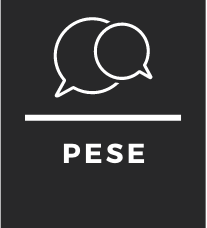Project Description
Enhancing access to professional English training for all
Unemployment in the EU remains a serious issue to tackle. In Spain the unemployment rate is around 13%. Italy fares better but still endures the consequences of an unemployment rate of around 8%. As outlined in the choice of priorities section above, The World Bank considers skills development to play a role in reducing unemployment. This project highlights the skill development of language and how that can help in reducing unemployment, a notion shared by the EC: “Foreign language proficiency is one of the main determinants of learning and professional mobility, as well as of domestic and international employability” (European Commission 2012).
The ability to effectively communicate at work is one of the 21st Century Skills demanded by employees. Feeling confident and competent in a foreign language plays a vital role in enhancing employability and mobility. The English language is so widely used in the EU and around the world in general that gaining some mastery of it provides the user with clear employment advantages. There are some studies that suggest that the probability of being employed when a candidate has appropriate English skills is in some cases increases by up to 12%. Currently about 94% of upper secondary students in the EU learn English. Many of them may be successful in their attempts to find employment partly because of their level of English. In a 2016 survey on foreign language skills Eurostats reporting that ‘It was common to find that employed persons had the highest level of foreign language proficiency when compared with the shares recorded among unemployed and inactive persons of the same age.’
The typical activities employers usually require from their English-speaking employees writing and answering emails and handling telephone calls – both of which require a special form of professional language that state school does not provide. On top of that, many English users are required by their employers to attend meetings, give presentations and handle negotiations- all in English. Again these all require a special set of linguistic skills, not too mention cultural awareness. Generally these topics come under the banner of ‘Business English’ to which access is usually restricted to the middle and upper management personnel or financial healthy companies. In other words, the unemployed have no access to this education. For the unemployed student seeking presentation skills for university, for the charity organiser attending meetings in Brussels, for the Erasmus + participant negotiating with partner organisations, for the mediator engaged in peace talks all these professional English skills would be invaluable. As well as set functional phrases and idioms there are the soft skills – rapport-building, summarising, back-channelling and body language- that enable success in these activities. For presentations alone there are numerous to make them impactful with signposting, hooks and an understanding of word and sentence stress.
This project aims to start research the labour market in partner countries and establish the type of English skills employers currently require from their employees. This information will be collated in the form of a handbook/guide to serve as a reference from which we can then establish a framework for a curriculum. The curriculum will then form the basis of an e- course on professional English skills targeted towards unemployed people in Europe. The hope is that this e-course will help to upskill the participants and increase their probability of finding employment. The fact that this is an e-course will obviously benefit those who live in rural areas and don’t have access to language schools or face-to-face classes.
The objectives of the project are to:
- Make high quality professional English training available for specifically unemployed citizens across Europe.
- Produce a sensible ready-to-go framework for a curriculum for professional English that can be impact on Language teachers and trainers.
- Upskill unemployed citizens with professional English skills that are actually required by employers.
The project will develop the following Intellectual Outputs:
- Handbook on current professional English requirements for partner countries
- Framework for a curriculum for professional English for employability
- E-course for professional English for employability
These intellectual outputs are all linked by necessity. The result of the research produced in the handbook will inform the development of the framework for a curriculum which in turn will influence the contents in the E-course.
IO2 and IO3, will be developed into two versions, the second one being an improved version of the first, having taken into consideration the feedback received during the piloting phase, and then version two will be finalised for each during the improvement phase. The first and second versions of IO2 and IO3 will be produced within the time frame specified in the ‘Intellectual Outputs’ section below, and in accordance with the attached project timeline.
The expectation is that on completion of the project, members of the direct target group (unemployed learners) involved in piloting and those reached through a widespread dissemination strategy will increase their professional English skills and thus boost their employability.
Three topics that will be addressed by the project

Teaching and learning of foreign languages

International cooperation, international relations, development cooperation

Cooperation between educational institutions and business
